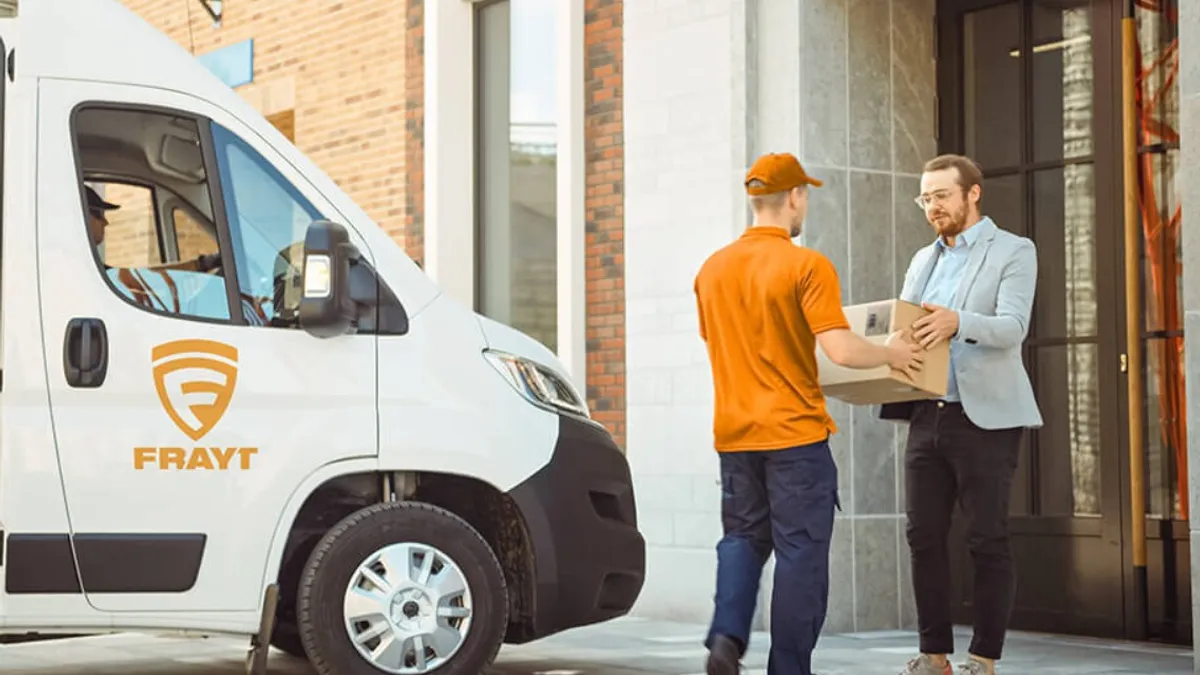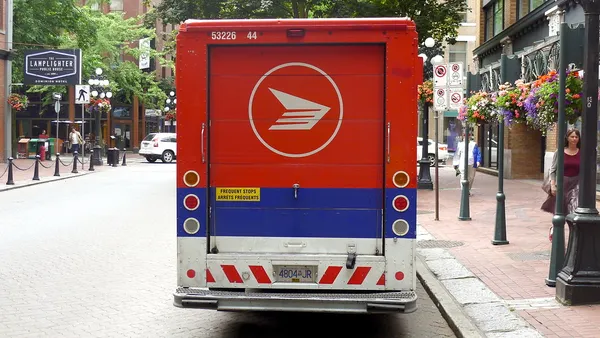Dive Brief:
- On-demand delivery provider Frayt is pushing to secure more large retail and industrial customers and 3PLs as it scales via a $7 million funding round, co-founder and CEO Luke Denny said in an interview.
- The Cincinnati-based company, which launched in 2018, has delivery drivers across more than 50 U.S. markets on its platform ready to serve customers. "It's all contracted owner-operators that own their own vehicle, anywhere between a sedan all the way up to a 26-foot box truck," Denny said.
- The Series A funding round led by Refinery Ventures will help Frayt grow volumes in its existing markets, launch new products and bolster its leadership team, Denny said. "We have a nice breadth of markets that we're in, but we want to create density."
Dive Insight:
Major parcel carriers have aggressively courted small and medium-sized customers in recent years to boost profitability, but the calculus is often different for emerging companies. Securing business with high-volume, enterprise customers can help them improve their unit economics and stand out among a growing roster of same-day and on-demand delivery firms.
Frayt has already made progress in drawing in large-scale shippers, with Bridgestone, Sherwin-Williams, The Tile Shop and Cargill among the company's 300-plus customer roster, per an April 11 news release. Denny said a major quality that attracts shippers to Frayt is its speed, as on-demand deliveries can arrive under an hour in some markets.
"We're striving to empower retailers, industrial suppliers and manufacturers to be able to catch up and surpass Amazon by having a delivery partner with a marketplace model that has not only the speed that Amazon has, but the reliability," Denny said. "That's a key thing that's hard to find in the industry today is that reliable marketplace network."
Frayt's ability to service shippers is a balancing act between having the necessary driver capacity in place — the company relies on contracted owner-operators — and ensuring there's adequate demand for the drivers to service. Denny said that of the 13,000 drivers on the company's platform, 15% are active, meaning they have made a delivery within the past 30 days.
The supply-demand balance in parcel delivery has shifted over the past year as volumes have fallen and shippers brace for an uncertain economic future. Even if carriers are struggling with excess capacity today, volume should bounce back in the market eventually, Denny said.
The strategy for delivery providers, he added, is to be patient.
"It's trying to have good unit economics and sustainability to weather these kinds of times, and then be ready when markets come back and volume resurges," Denny said.















